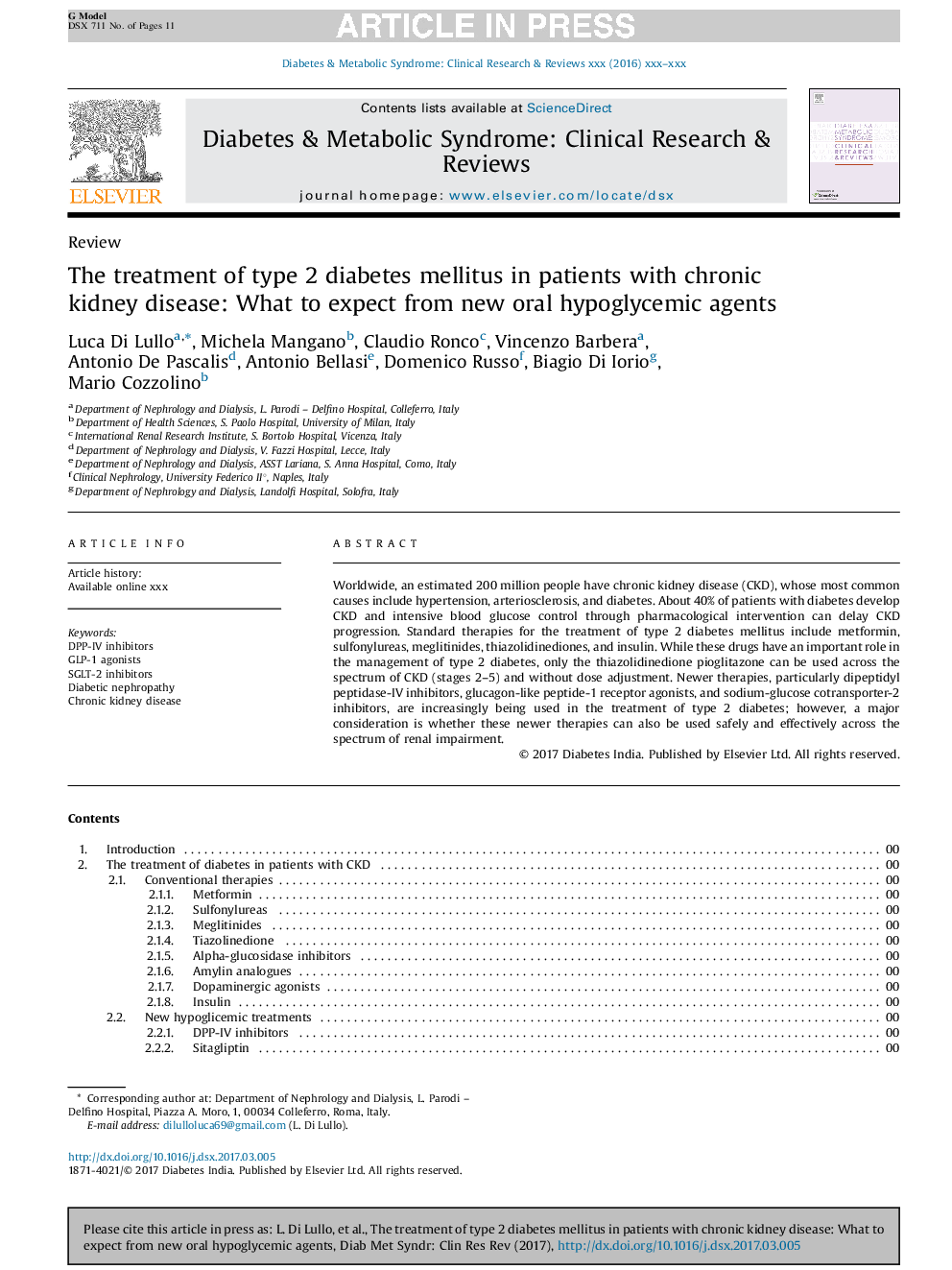| Article ID | Journal | Published Year | Pages | File Type |
|---|---|---|---|---|
| 8659054 | Diabetes & Metabolic Syndrome: Clinical Research & Reviews | 2017 | 11 Pages |
Abstract
Worldwide, an estimated 200 million people have chronic kidney disease (CKD), whose most common causes include hypertension, arteriosclerosis, and diabetes. About 40% of patients with diabetes develop CKD and intensive blood glucose control through pharmacological intervention can delay CKD progression. Standard therapies for the treatment of type 2 diabetes mellitus include metformin, sulfonylureas, meglitinides, thiazolidinediones, and insulin. While these drugs have an important role in the management of type 2 diabetes, only the thiazolidinedione pioglitazone can be used across the spectrum of CKD (stages 2-5) and without dose adjustment. Newer therapies, particularly dipeptidyl peptidase-IV inhibitors, glucagon-like peptide-1 receptor agonists, and sodium-glucose cotransporter-2 inhibitors, are increasingly being used in the treatment of type 2 diabetes; however, a major consideration is whether these newer therapies can also be used safely and effectively across the spectrum of renal impairment.
Related Topics
Health Sciences
Medicine and Dentistry
Cardiology and Cardiovascular Medicine
Authors
Luca Di Lullo, Michela Mangano, Claudio Ronco, Vincenzo Barbera, Antonio De Pascalis, Antonio Bellasi, Domenico Russo, Biagio Di Iorio, Mario Cozzolino,
